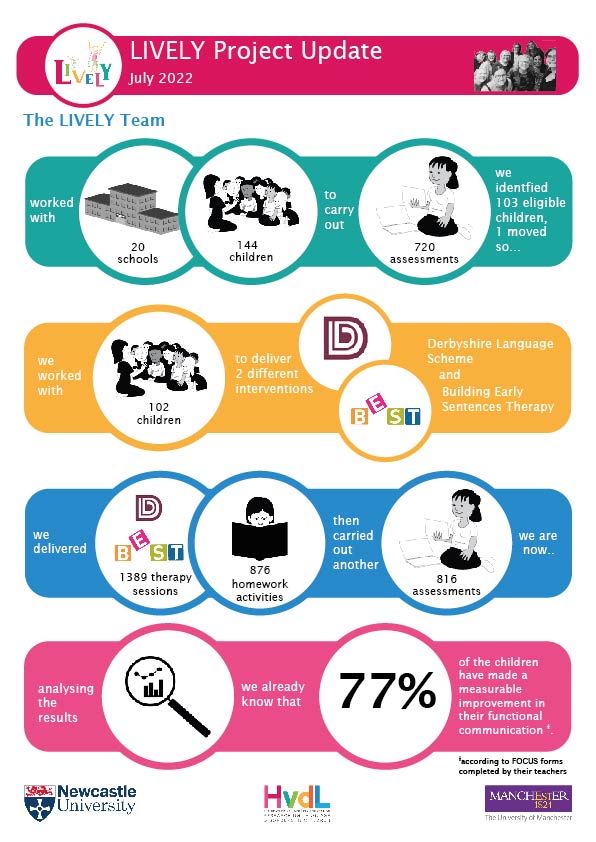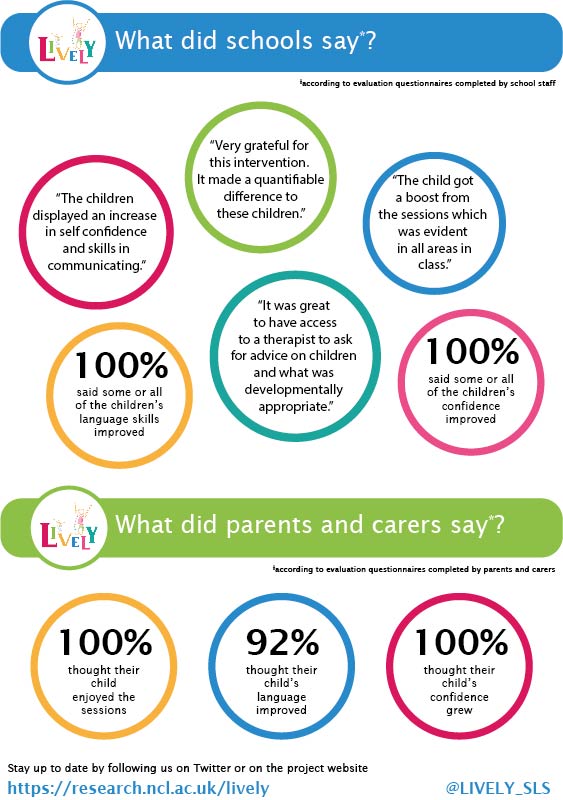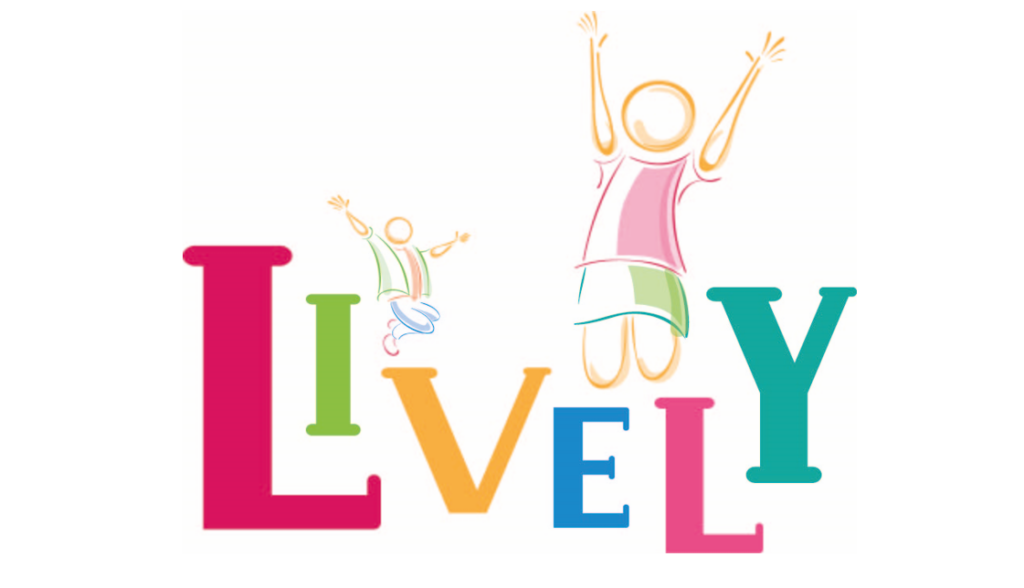The Language Intervention in the Early Years (LIVELY) project commenced in November 2019, recruiting schools in the North East of England. The aim of the LIVELY project was to compare the efficacy of two different intervention approaches, each with a goal to improve the oral language skills of children (age 3;05 – 4;05) with severe language difficulties. Around 10% of children in the UK have language difficulties, rising to 40% in the most socially disadvantaged areas.
The two intervention approaches compared were the Building Early Sentences Therapy (BEST) and an adapted version of the Derbyshire Language Scheme (DLS).
BEST uses ‘usage-based’ linguistic theory to support more flexible understanding and use of a range of sentences. BEST is a new language intervention, developed by Newcastle University in partnership with speech and language therapists, for children who find it difficult to understand and/or produce sentences with 2, 3 and 4 clause elements. The intervention aims to change children’s underlying linguistic representations of the elements of a sentence so they can use sentences more flexibly. The key focus of the intervention is learning through listening.
The DLS supports children’s understanding and use of language by increasing the number of information carrying words that the child needs to understand. This approach has been widely used for many years. For this project, an adapted version of the DLS was created, in collaboration with one of the original developers, Mark Masidlover, which could be delivered with high treatment fidelity and reliability, and which ‘matched’ BEST as closely as possible in terms of dosage and delivery, whilst retaining the key principles of the DLS.
Schools involved in the project were randomly allocated to one of the two intervention groups (BEST or DLS).
In January 2020, schools identified children they felt would be eligible for the project. Assessments started in February and March 2020, until the project was paused due to the Covid-19 outbreak.
The LIVELY team started working with schools again in March 2021. Some changes were made on the project to ensure school staff and children, as well as the research team, were safe. A risk assessment was updated in response to the pandemic, the team wore PPE when working with the children and each school were given their own intervention resources, which were regularly cleaned after use.
The project was split into two waves:
- Wave 1 (March 2021-September 2021)
- Wave 2 (September 2021 – May 2022)
The interventions were delivered twice a week, for 8 weeks, with each session lasting up to 20 minutes. Homework packs were given to schools to send home with the parents. Parents were sent a text after each session with a link to the homework resources and video instructions.
Assessment data was also collected across 3 time-points: baseline, outcome and follow-up (6 weeks post intervention).
The project data is currently undergoing analysis to find out which intervention approach is the most effective.
Authors: Emily Preston, Elaine Ashton, Christine Jack, Cristina McKean



